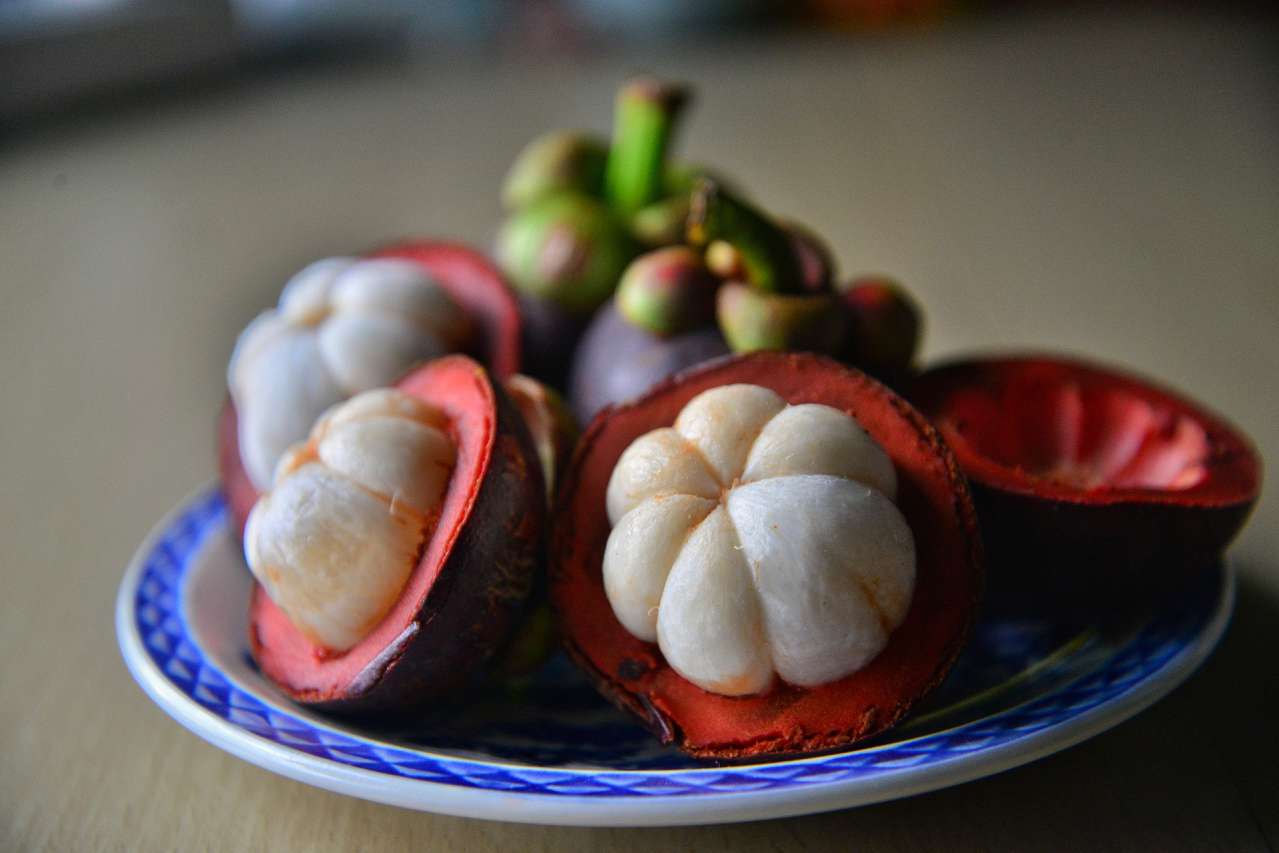Mangosteen is an exotic fruit that takes pride of place next to the king of all fruits - durian.
Its delicate pulp amazingly combines the flavors of peach, pineapple, grapes and strawberries.
According to one legend, the fruit got its name in one of the Thai markets.
What are the benefits of mangosteen
Mangosteen (mangosteen, mangosteen, garcinia mangosteen) is rich in useful substances: vitamins A, C, group B, microelements (copper, iron, zinc, manganese), macroelements (calcium, magnesium, phosphorus).
The main advantage of mangosteen: the pericarp contains the largest amount of xanthones of any plant.

This exotic fruit has anti-inflammatory and antihistamine effects.
Due to its composition, it is recommended to be included in the diet for Alzheimer's and Parkinson's diseases, skin diseases, and all types of cancer.
In some countries, a medicinal tea is prepared from mangosteen to help with diarrhea.
How to eat mangosteen correctly
Before eating, mangosteens must be properly peeled by making neat circular cuts in the central part of the fruit, being careful not to damage the flesh.
Open the peel and remove the slices.
You can also cut the top of the fruit, and then remove the delicious pulp of the fruit using a regular spoon or fork.









